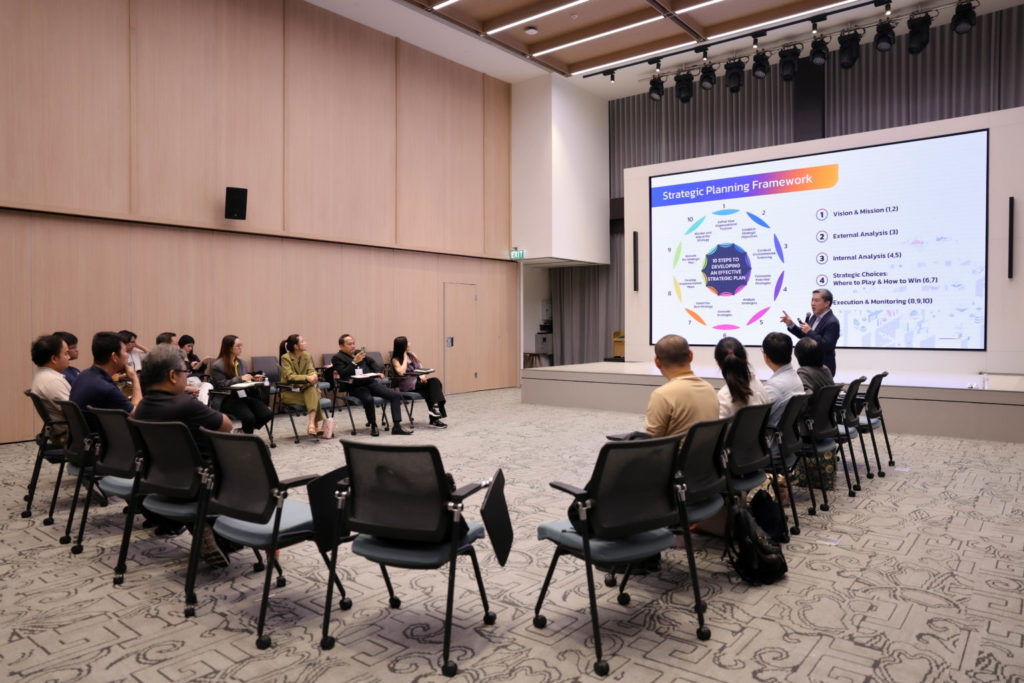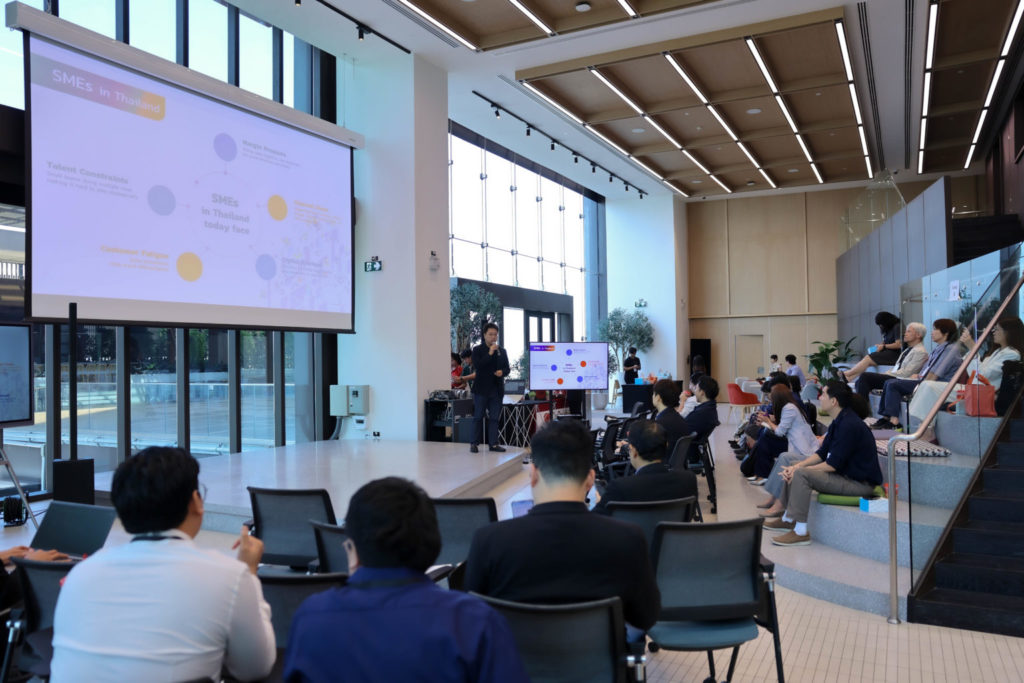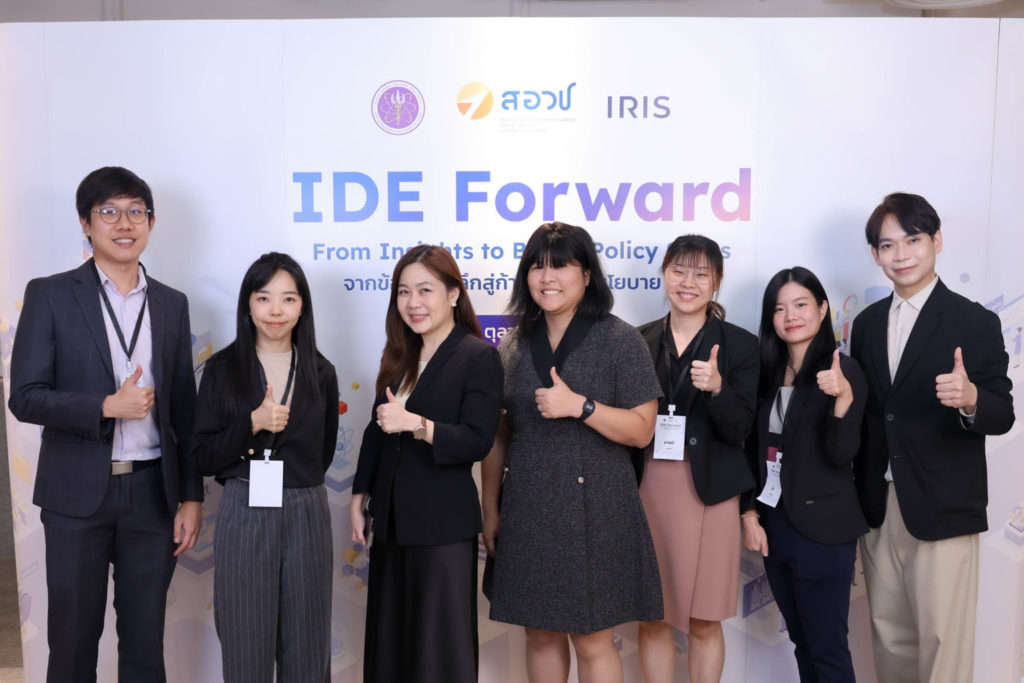NXPO, in collaboration with Iris Consulting, organized a seminar titled “IDE Forward: From Insights to Better Policy Shifts” on 20 October 2025 at Siam Patumwan House. The event was opened by NXPO President Dr. Surachai Sathitkunarat.

In his opening remarks, Dr. Surachai emphasized NXPO’s ongoing commitment to advancing innovation-driven enterprises (IDEs) through collaborative policy initiatives across government, industry, and academia. This effort aims to help Thailand break free from the middle-income trap by fostering 1,000 IDEs, each with an average annual revenue of one billion THB. As a key policy agency, NXPO plays a central role in policy monitoring, evaluation, and evidence-based feedback, ensuring that research and innovation funding effectively aligns with national priorities.

He noted that achieving sustainable policy impact requires collaboration across the entire innovation ecosystem, including the National Innovation Agency (NIA), Board of Investment (BOI), Digital Economy Promotion Agency (depa), National Research Council of Thailand (NRCT), Technology and Innovation-Based Enterprise Development Fund (TED Fund), science parks, universities, innovation business associations, and startup communities.
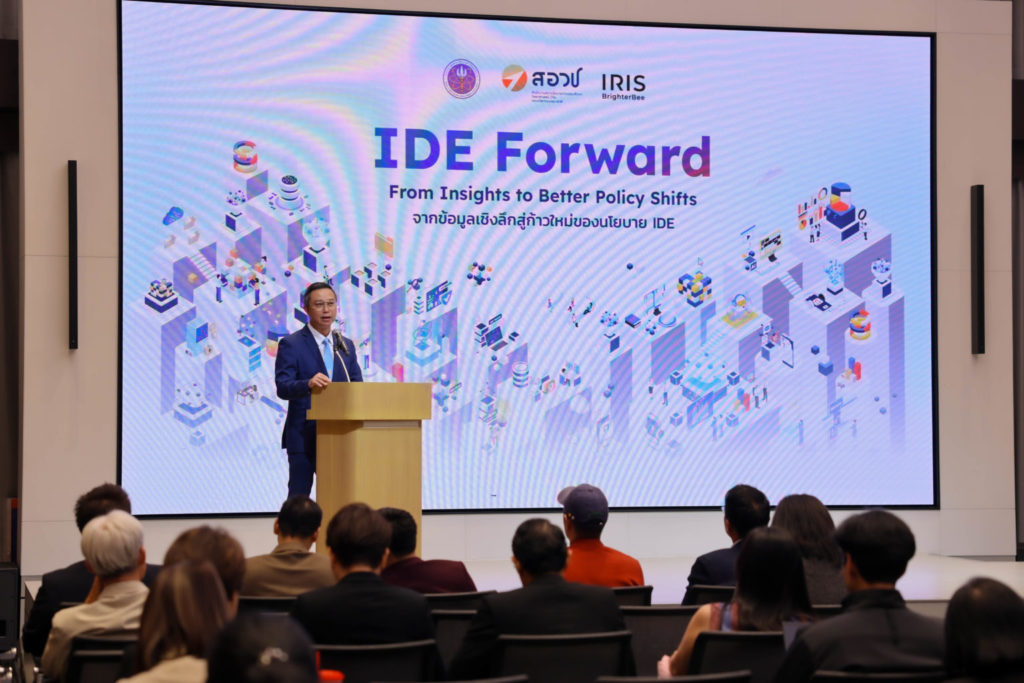
“This event marks a joint effort between NXPO and Iris Consulting to share insights on the growth and landscape of IDEs, engaging all stakeholders in refining policies that better support entrepreneurs,” said Dr. Surachai.

Ms. Manunya Chunhavuthiyanon, Director of Innovation Policy for Entrepreneurship Development at NXPO, presented findings from a project monitoring the progress of IDEs and assessing the alignment of government support measures with innovation ecosystem needs. The study drew on three primary data sources — the RDI Survey database on national R&D and innovation activities, the Thai Startup Trade Association database, and government agency databases on IDE support — covering 3,300 companies and in-depth interviews with 103 innovative businesses.

The study also found that most Thai startups remain in the early stages, averaging under ten years in operation and concentrated in the digital industry. Three major challenges hindering IDE growth were identified: 1) Complex access to government support mechanisms, 2) Limited market expansion capacity, domestically and internationally, and 3) Shortage of high-skilled workers in technology and innovation. These issues call for stronger integration among government, private sector, and academia.
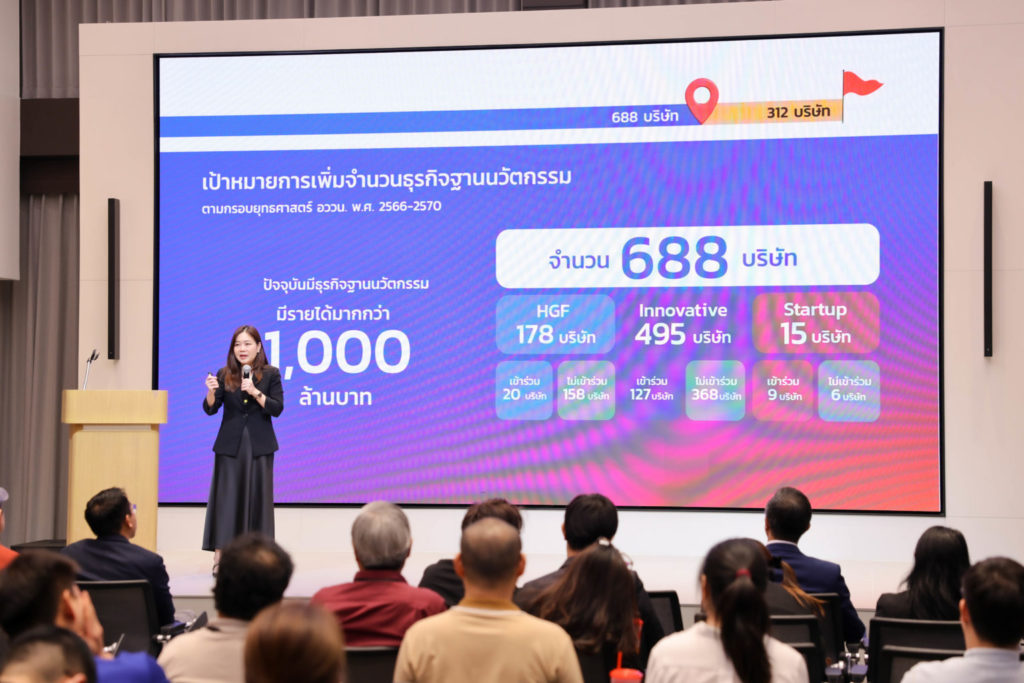
Currently, Thailand has 688 IDEs generating over one billion THB in annual revenue, comprising 178 high-growth firms, 495 innovative firms, and 15 startups. While still below the 1,000-company target set in the 2023–2027 Higher Education, Science, Research and Innovation Strategic Plan, this growth signals promising momentum in Thailand’s innovation landscape.
“To enable sustainable IDE growth, we must establish continuous and inclusive support pathways — from startups and SMEs to global players. This requires: 1) Establishing support programs covering all growth stages, 2) Scaling SMEs and IDEs into high-growth firms, and 3) Developing an integrated digital-based support system for efficient access to government assistance,” Ms. Manunya stated.
The event also featured a panel discussion on “Scaling Up IDEs: How to Make It Work?”, with speakers from NIA, the Thai Startup Trade Association, and Orgafeed. The discussion explored strategies to unlock IDE potential amid challenges in market access, funding, and talent shortages, emphasizing the need to foster an entrepreneurial mindset and global ambition from inception.




In addition, three IDE Forward Workshops were held: 1) Strategy Sprint: Accelerate Your Growth Plan, 2) Market Momentum: Accelerate Your Commercial Impact, and 3) Tech Ignite: Spark Your Digital Journey. The event concluded with a reflective session titled “Ignite & Reflect: From Knowledge to Action”.
